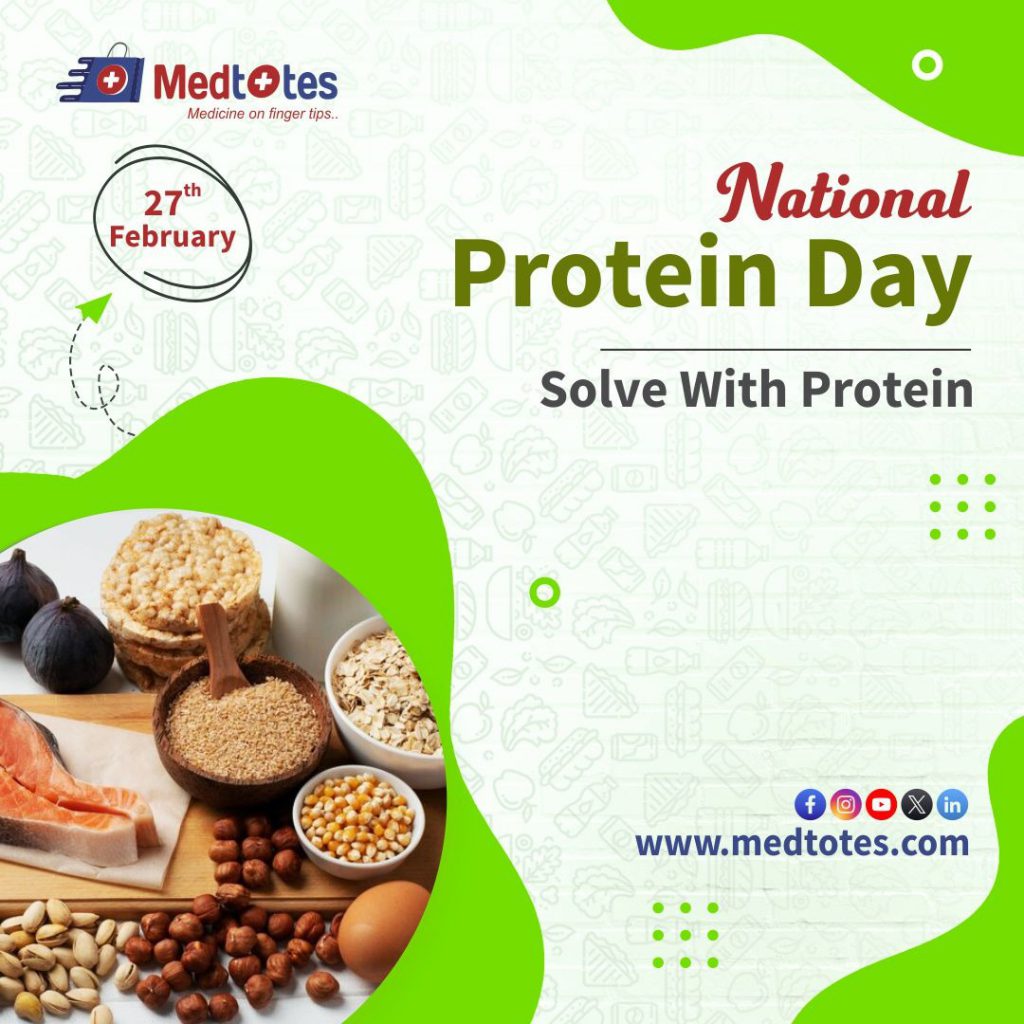I. Introduction
Protein is a vital nutrient essential for overall health, playing a crucial role in tissue repair, immune function, and energy. It is found in various foods like lean meats, dairy products, legumes, and nuts, making it accessible to people with different dietary preferences. Whether vegan, vegetarian, or omnivore, there are numerous delicious and nutritious protein sources to choose from. On National Protein Day, we celebrate the role protein plays in nourishing our bodies and energizing our lives, ensuring it is included in daily meals for optimal health and wellness.

II. Understanding
Proteins, composed of amino acids, are essential macro-nutrients for various bodily functions like muscle repair, growth, enzyme production, hormone regulation, and immune system support. The body does not store protein, making it crucial to consume it daily. Protein is found in various foods, like meat, poultry, fish, dairy products, legumes, nuts, and seeds. Consuming a variety of protein sources ensures the body receives all essential amino acids. Protein also aids in satiety and weight management, as it helps people feel full and satisfied, preventing overeating and snacking on unhealthy foods. To meet daily protein needs, aim to include protein in each meal and snack.
III. Benefits of Protein
- supports muscle growth and repair
- boosts metabolism
- helps maintain healthy skin, hair, and nails
- assists in balancing blood sugar levels
- enhances overall body function and performance
- provides energy
- supports immune function
- aids in hormone production
- supports bone health
- helps with tissue repair and growth
IV. Guidelines for Meeting Protein Requirements
- Meeting daily protein requirements doesn’t have to be complicated. Here are some practical tips to ensure you’re getting enough protein:
- Include a source of protein in your daily diet.
- To reduce your saturated fat consumption, choose lean protein sources, including poultry, fish, tofu, and lentils.
- For more diversity, try plant-based protein sources such as quinoa, lentils, chickpeas, and edamame.
- Incorporate protein-rich snacks like Greek yogurt, cottage cheese, or a handful of almonds into your regular diet.
- Don’t skip breakfast start your day with protein-rich options like eggs, Greek yogurt, or a protein smoothie.
V. Conclusion
On National Protein Day, we should acknowledge the crucial role protein plays in our bodies and lives. By incorporating protein-rich foods and sustainable nutrition practices, we can create a healthier future for ourselves and the planet. Protein is essential for muscle growth, repair, immune system maintenance, and bodily functions. Conscious choices in protein intake are crucial for long-term health and vitality.
Download our app: https://bit.ly/3tkQkFy
